DeNike Dental provides dental implants in Emerson, NJ, including single tooth implants, implant-supported bridges, implant-supported dentures, full arch with only four implants, and mini dental implants.
Call 201-599-0001 to learn more and schedule your appointment.
Single Tooth Dental Implants
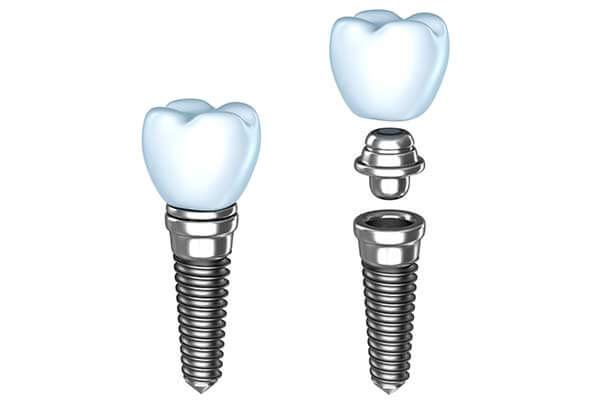
Dental implants are the first and only solution for missing teeth that replaces both the root and the crown to protect against bone loss in the jaw. The result is a replacement tooth that looks and functions exactly like the real thing. The dental implant itself is a small titanium post that is implanted into the jaw where the root once was. An abutment is attached to the implant and then a fixed or removable replacement tooth is secured to the abutment.
Implant Supported Bridges
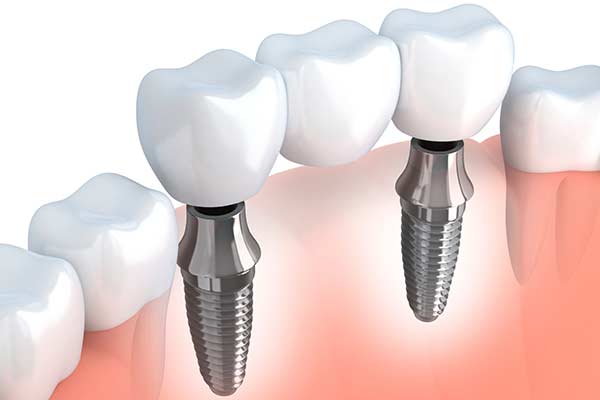
If three or more adjacent teeth need to be replaced, implant-supported bridges are an ideal solution. Dental implants are used to replace the two outermost teeth. These implants are then used to support a porcelain bridge. An implant-supported bridge is a functional and aesthetic replacement for natural teeth, with the added benefit of protecting against jaw bone loss.
Implant Supported Dentures
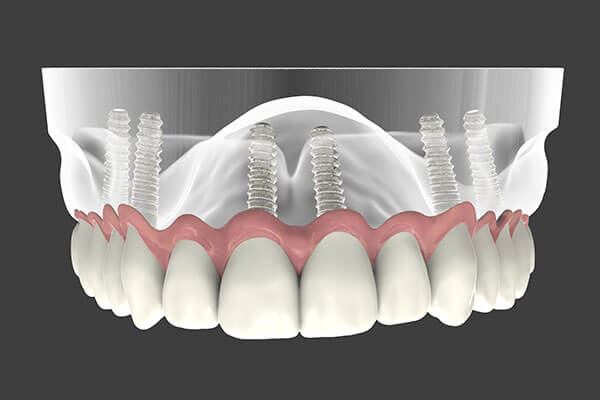
Implant-supported dentures replace all or most of a patient’s teeth without the discomfort and hassle of traditional dentures. Because implant-supported dentures are anchored in place with dental implants, there’s no messy denture adhesive needed and no more worries about dentures slipping or impacting speech. Typically, two or more implants are used to support the denture, which can be full or partial, fixed or removable (often referred to as “snap-on” dentures).
Full Arch with Only Four Implants
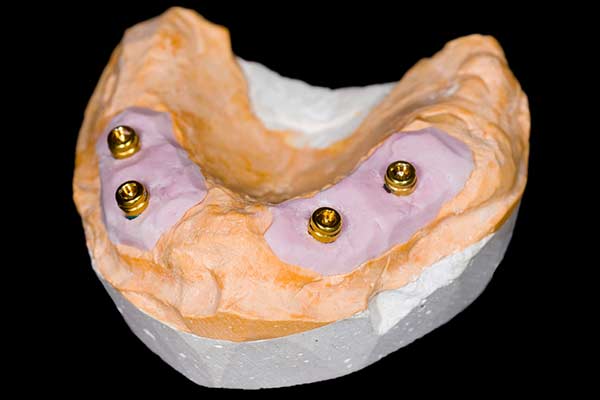
This unique implant solution replaces an entire upper or lower arch of missing teeth by placing four dental implants that are used as anchors for replacement teeth.
Mini Dental Implants (MDIs)
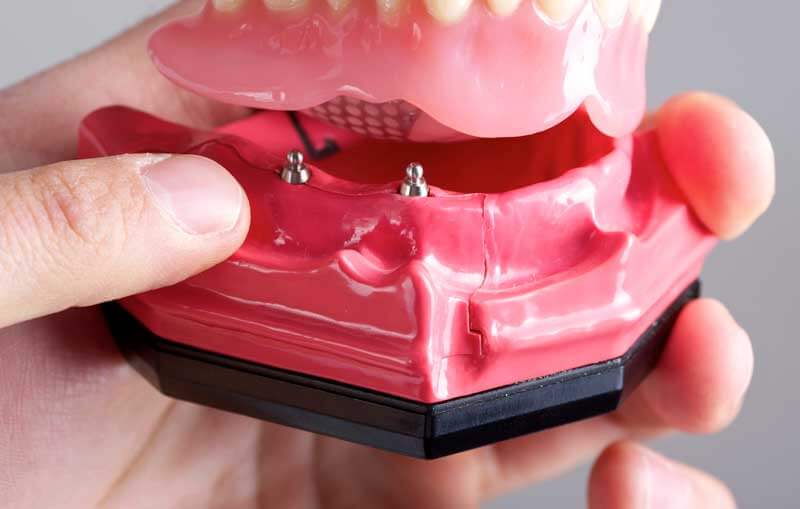
Before placing dental implants, we take imaging to ensure that the jaw has adequate bone mass to support them. When bone mass is insufficient, mini dental implants may be an option. MDIs function the same as traditional dental implants, but their smaller size makes them easier to support. The MDI placement procedure is less invasive than dental implant surgery, typically requiring only local anesthetic and no sutures. The entire process, from implant placement to affixing the replacement tooth, usually only takes a single day.
Guided Implant Placement

With dental implants, it’s crucial that placement is done correctly the first time to minimize failure and complications. Guided implant placement helps us ensure success for our patients, allowing us to use custom surgical guides that direct the exact location, angle, and depth of each implant placement.
Learn more about Guided Implant Placement
Call 201-599-0001 to learn more about our dental implant services and to schedule your appointment.
Frequently Asked Questions About Dental Implants
How much do dental implants cost?
Dental implants have three components: the dental implant itself, which is a small post or screw that is implanted into the jawbone, the abutment that attaches to the implant, and the restoration that is anchored in place by the abutment. The restoration can be a crown, bridge, or denture. The cost of dental implants depends on the type of restoration being used, the number of teeth being replaced, and whether supplementary procedures like sinus lifts or bone grafting are needed. Usually the cost of a single dental implant is between $3000 and $4500.
What is the downside of dental implants?
Dental implants are a surgical procedure and like any other surgery, there are some risks involved, including infection, injuries to surrounding tissue, nerve damage, and bleeding. There’s also a small number of patients who experience dental implant failure. That said, the benefits of dental implants vastly outweigh the risks.
How painful is a dental implant?
Getting a dental implant is no more painful than any other oral surgery you’ve had in the past—in fact, many patients report that dental implants are less painful than tooth extractions. Your mouth will be numb while we work, so you will not feel any pain during the procedure itself. Afterwards, you are likely to experience some tenderness and swelling, but this can be relieved with cold compresses and over-the-counter pain relievers.
How long does a dental implant last?
With proper aftercare and good oral hygiene habits, your dental implants can last a lifetime. Depending on your age, you may need to have the restoration that is attached to your dental implant replaced at some point.
Are you put to sleep for dental implants?
Many patients opt to be awake during the procedure, particularly if they are only receiving one or two implants. If you feel more comfortable sleeping through the procedure, we can use IV sedation.
Can your mouth reject an implant?
Yes, there are very rare cases in which patients’ bodies reject their dental implants, but because biocompatible metal is used to make them, the vast majority of patients have no complications.
Do dental implants feel like real teeth?
Dental implants are the most natural replacement for missing teeth because they look and function just like the real thing. They feel similar to teeth too, but it’s not quite the same because your dental implants don’t experience sensations the same way that your natural teeth do. That said, most patients find that they feel so realistic that over time, they forget they even have implants!
Which is better, dentures or dental implants?
Dental implants are the better option in nearly all cases. This is because dental implants prevent and even reverse bone loss in the jaw. When the jawbone begins to break down after tooth loss, it can result in a prematurely aged appearance and a weakened bite; dental implants are the only solution that prevents this from happening.

